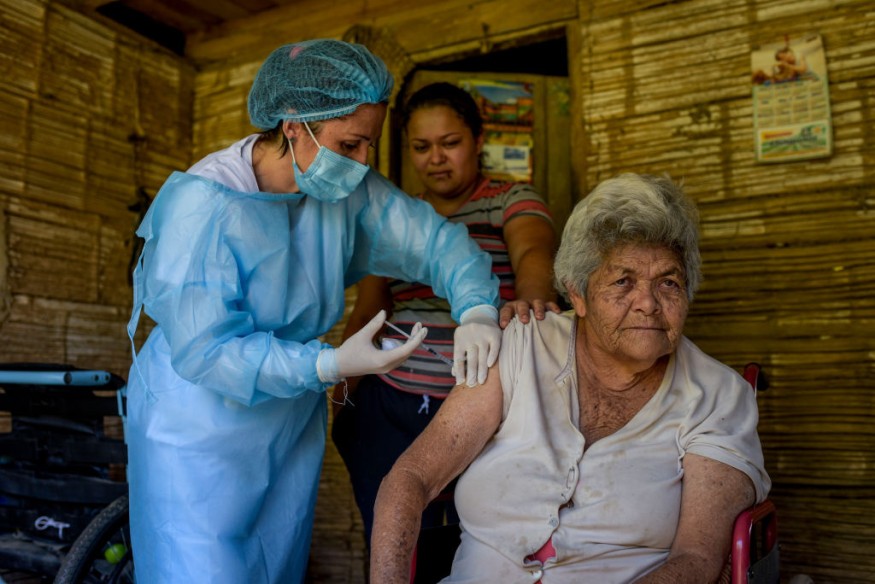Ensuring that displaced and refugee communities have access to COVID-19 vaccines and addressing injustices in health services are important in efficient pandemic response. Currently, vaccine availability and distribution continue to be neither inclusive nor equitable, despite claims by global leaders that they consider such a critical factor in fighting COVID-19.
The paper, "Leave No-one Behind: Ensuring Access to COVID-19 vaccines for Refugee and Displaced Populations," published in the Nature Medicine journal, divulged that upper-middle and high-income countries took 86 percent of vaccines delivered globally, while 0.1 percent of doses have been sent to developing countries. Globally, more than 80 percent of refugees and displaced people who live in low to middle-income countries, which are the least priority for COVID-19 doses.
Grappling With Unequal, Scarce Vaccine Access
As the world contends with supply difficulties and inequitable access due to vaccine nationalism, as pointed out in a MedicalXPress feature, marginalized communities, specifically refugees, internally displaced persons, and stateless individuals, have to grapple with a "double burden" of vaccine access within low- to middle-income countries, which are at the end of the line for COVID-19 vaccine supply. One's a legal status, the paper said, should not be a factor in decisions on vaccine access, and their regularization as a requirement for vaccination will delay the process for migrants and refugees.
In problematic states with weak governance, the race for scarce COVID-19 vaccine supply may increase tensions and heighten conflicts. In contrast, the unequal vaccine access would lead to the possible migration of populations to secure vaccines not available in their countries.

A facility of the COVID-19 Vaccines Global Access (COVAX), which is a global initiative aimed at equitable COVID-19 vaccine access, allots around five percent of total available doses for charitable use, and this includes vaccinating refugees, with the first round of allocation made last March as reported in the World Health Organization website. But the total two billion vaccines by the end of 2021 will only include 20 percent of the populations of the participating countries. Wide vaccinations in poorer countries would not happen until 2023.
Opportunity to Build Stronger, Responsive Health System
To build an inclusive and equitable COVID-19 vaccination strategy, the paper noted that lessons could be learned from previous experiences handling conditions such as HIV and tuberculosis and large-scale, humanitarian vaccination campaigns. The authors underscore that current approaches for COVID-19 vaccinations would further establish the inequalities experienced by refugees and displaced communities around the world or provide a chance for better, stronger, fairer health programs that are ready to respond to COVID-19 and future health crises.
The paper seeks to engage, listen, and mobilize religious and community leaders in vaccine activities is vital. Public health officials should take the opportunity to fortify their health systems more sustainably and broadly to better take on the challenges of COVID-19 while responding to the health needs of refugees and host populations, the paper further noted.
As the world faces the worst public health crises in recent memory, how policy makers will act on it will determine the course of the virus and who would benefit from enhanced public health services in the coming years.
RELATED ARTICLE : Oxford-AstraZeneca COVID-19 Vaccine Jab Suspended in Italy, France, and Spain Due to Blood Clot Reports
Check out more news and information on COVID-19 Vaccines on Science Times.










